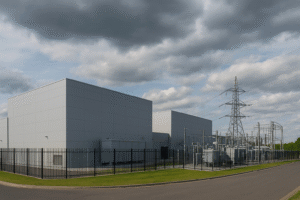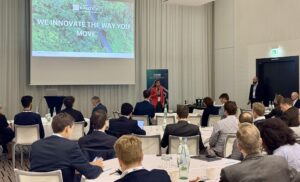To power the new hydrogen vehicles of Disfrimur, a number of companies in Spain will build and maintain sustainable power stations. With this infrastructure in place, more and more hydrogen-powered fleets could become a reality in the southern-European nation. In general, this points towards some interesting trends in sustainable transportation across the EU. So what are some of the implications?
Hydrogen power
Like other sustainable alternatives, the advantage of hydrogen is namely its lack of emissions. When burned, it only produces water and it can be produced from a variety of eco-friendly sources. Like most fossil-fuel alternatives, hydrogen suffers from a high cost of adoption. Not only would a company need to overhaul its fleet, but it would need an entirely new logistics chain. New machinery and infrastructure have to be built and currently, the abundance of alternative fuel options is a hindrance. Because there are numerous potential biofuels, companies are as of yet unsure which to adopt fully.
The growth of sustainable fuels
As subsidies and technological advancements progress, initiatives like the one mentioned above slowly push Europe towards decarbonization. Many companies are building possible roadmaps for true decarbonization and are weighing the cost of adoption. The question isn’t if they will adopt sustainable fuels, the question is when? As more infrastructure gets created, the cost of adoption drops. Economies of scale, will, at some point keep pushing the costs of sustainable fuels down. Similarly, as more specialists, technicians, and service providers enter the market, maintenance costs will decrease.
What to keep in mind for the future
Any business needs to consider logistics costs as part of its supply chain and needs to have a plan for the next decade. Firstly, regulatory pressure to decarbonize will only grow. Simultaneously, it may find that the costs of alternative fuels will continue to drop. The primary question is which fuel? Disfrimur seems to be betting on hydrogen, but it is vital to understand the needs and potential future needs of your business. To that end, companies need to explore the market, and just as importantly, explore what their peers are doing. The Global Summit on Scope 3 Emissions Reduction will bring together key industry experts to learn more about reporting strategies & carbon data management in a small-scale, industry-driven event, on 20-21st April 2023 in Amsterdam, the Netherlands. The two-day, hybrid event features in-depth case studies of supply chain transformation, carbon accounting, and networking breaks dedicated to exchanging insights and expertise on tackling Scope 3 emissions. Visit future-bridge.eu and netzero-events.com or follow us on our social media to track other energy use and decarbonization events.




